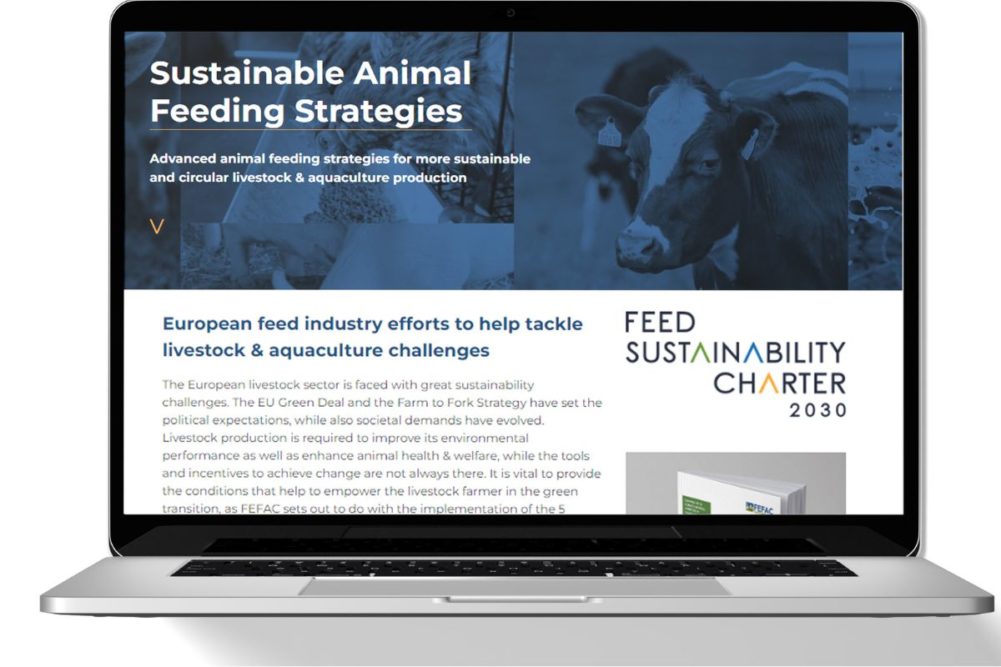BRUSSELS, BELGIUM — The European Compound Feed Manufacturers’ Federation (FEFAC), which represents 21 national associations in 21 European Union member states, has begun an awareness campaign on the potential benefits of advanced feeding strategies to support sustainable and circular livestock and aquaculture production.
The campaign’s goal is to provide access to value chain partners and decisionmakers to sound science-based information on the techniques themselves, how they work and for which species, and considerations on the economic impacts and trade-offs. Practical case studies showcasing existing animal feeding strategies are now available online on the FEFAC website.
A new FEFAC publication, “Advanced Feeding Strategies for Enhanced and Circular Sustainable Livestock and Aquaculture Production,” focuses on the five key goals detailed in the FEFAC Feed Sustainability Charter 2030.
“It is high time for the feed industry to show and prove what animal nutrition can deliver to the livestock and aquaculture sectors for the green transition so that decision-makers and chain partners can evaluate and approve the investment potential of such feeding technologies in full confidence,” said Asbjørn Børsting, president of FEFAC.
The EU Green Deal has spurred research to address sustainability challenges such as climate change, deforestation, and animal health and welfare. With the increasingly fast pace of innovation and science, FEFAC said providing more information and visibility is vital to highlighting potential solutions for more widespread adoption.
Animal nutrition alone cannot address all challenges the livestock sector faces, FEFAC said, and the pressure points on sustainability are very different depending on animal species, noting that the trade-offs or economic impacts can sometimes be negative. However, FEFAC said it is convinced the EU feed industry can greatly contribute to more sustainable livestock and aquaculture production.
“We want to show the decisionmakers, our chain partners and the public that there is a science-based alternative to having a narrow focus of simply bringing down the livestock population in the EU, which would only increase the EU reliance on third-country imports to feed itself with high-value livestock and aquaculture proteins,” Børsting said.
The FEFAC publication and the case studies are available online.



